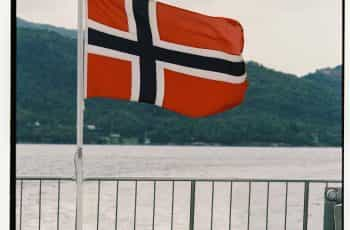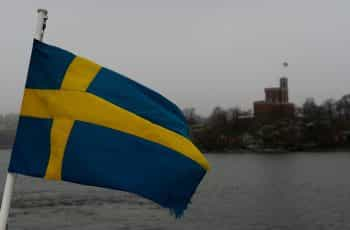Best Payment Blocking Method Sought in Norway
Lotteri-og Stiftelsestilynet, the Norwegian regulator for gambling has commissioned a survey of banks in the country to determine the ways of blocking offshore payments. The regulatory body is undergoing this task in an effort to find methods to better protect gamblers in Norway, and how they can support those struggling with gambling-related problems.

The gambling regulator is hopeful that by conducting a survey of payment blocking in Norway it will be able to better prevent unlicensed operators from conducting business in the country. ©enriquelopezgarre/Pixabay
The survey will be produced by the regulator and, once finished, will be sent out to 170 banks that operate in Norway throughout the summer. Any responses to the questions asked will be anonymous to help protect the banks from any countermeasures that could otherwise be used against them as a result.
This survey relates to the payment ban that was first introduced in 2010 in Norway. This legislation banned banks from taking or making payments to any unlicensed operators in the country. This was then amended late in December of 2019.
The amendments were because of concerns that around NOK6 billion was being spent every year in transactions with these illegal operators.
Unlicensed operators were still able to make such transactions by using third-parties as a loophole in the legislation. By transferring sums using other groups, the illegitimate operators have been able to hide their illicit activity and operate successfully in Norway.
To counteract this activity, the country’s gambling regulator made changes to the initial law that enabled it to request that banks blocked transactions from specific companies or accounts. The amendments gave the regulator the authority to decide which transfers appeared specific, and to isolate the third parties that were used to make them.
The update to the legislation also gave the authority the power to order banks and payment platforms to undergo thorough investigations into the activity of their customers that do not hold a license in the country.
Surveying the Banks
The survey that is being performed seeks to assess the effectiveness of these amendments to the legislation. The regulator also hopes that the survey will provide places where further changes could be made to help to improve the efficiency of blocking payments to offshore companies, and, therefore, reduce their influence in the country.
A senior advisor for the regulatory body stated that the insights that are generated by the survey can then be used to reduce the offerings of illegal companies in the gambling market in Norway.
The main emphasis of the survey will be to ascertain what measures banks use to mitigate these transactions between foreign, unlicensed gambling operators and the financial groups, as well as how these transactions are subsequently explained to customers.
The reason for the second focus that was mentioned is that the regulator wishes to determine whether these banks have contact with those who are using the unlicensed gambling services. This would help to uncover how the banks communicate the payment ban to the consumers.
Lotteri-og Stiftelsestilynet has claimed that these investigations are important for consumer protection. A recent study that was performed in Norway to gauge the prevalence of gambling addiction and the risk of developing such problems in the country found that around 55,000 people were struggling with problematic gambling behaviors in Norway.
Whilst this number does not seem exceptionally in terms of an absolute figure when it is compared to the overall population of Norway, it represents 1% of the total number of people who live there. The study also showed a significant increase in this figure over the past five years, as it had risen from 34,000 people in 2015.
The investigation, that was performed on behalf of the country’s regulator by the University of Bergen, also estimated that there are another 122,000 people in Norway who could feasibly develop gambling problems in the future.
The argument made by the regulator is that the majority of the people that have such issues with gambling are using the services of unlicensed operators. This has been disputed by some, however, who have instead insisted that the blame lies with the gambling monopoly that is present in Norway.
The regulator has instead claimed that harsh punishment is needed for those that continue to operate in Norway without a license. Others in Norway have made a counter-argument that a better course of action would be open the market up to private operators.
Living as we do, in a digital age, some industry professionals have argued that gambling does not follow the borders of countries and that it is, therefore, futile to try to prevent operators from offering their services to Norwegian consumers.
The regulator does not entertain such ideas, however, and maintains that the best course of action in to push foreign operators out using methods such as payment blocking, and by closing loopholes that have allowed foreign business from advertising their products on TV via satellite broadcasts.



